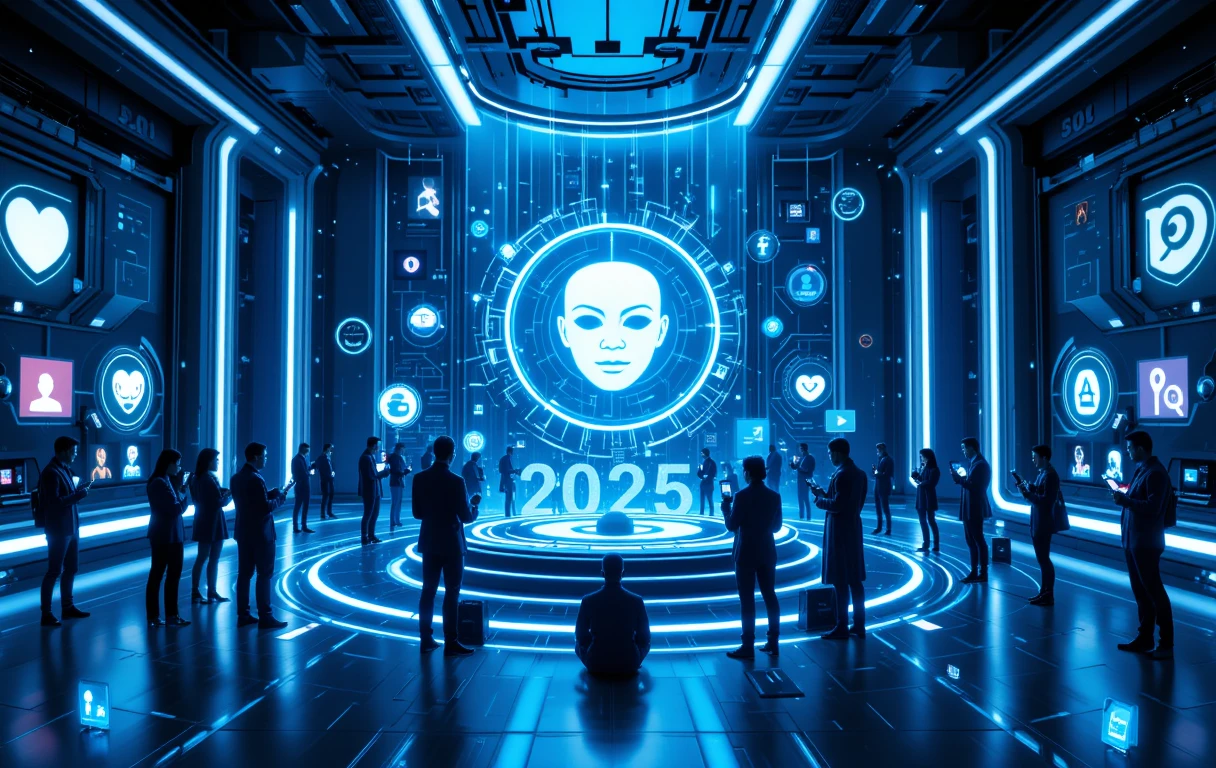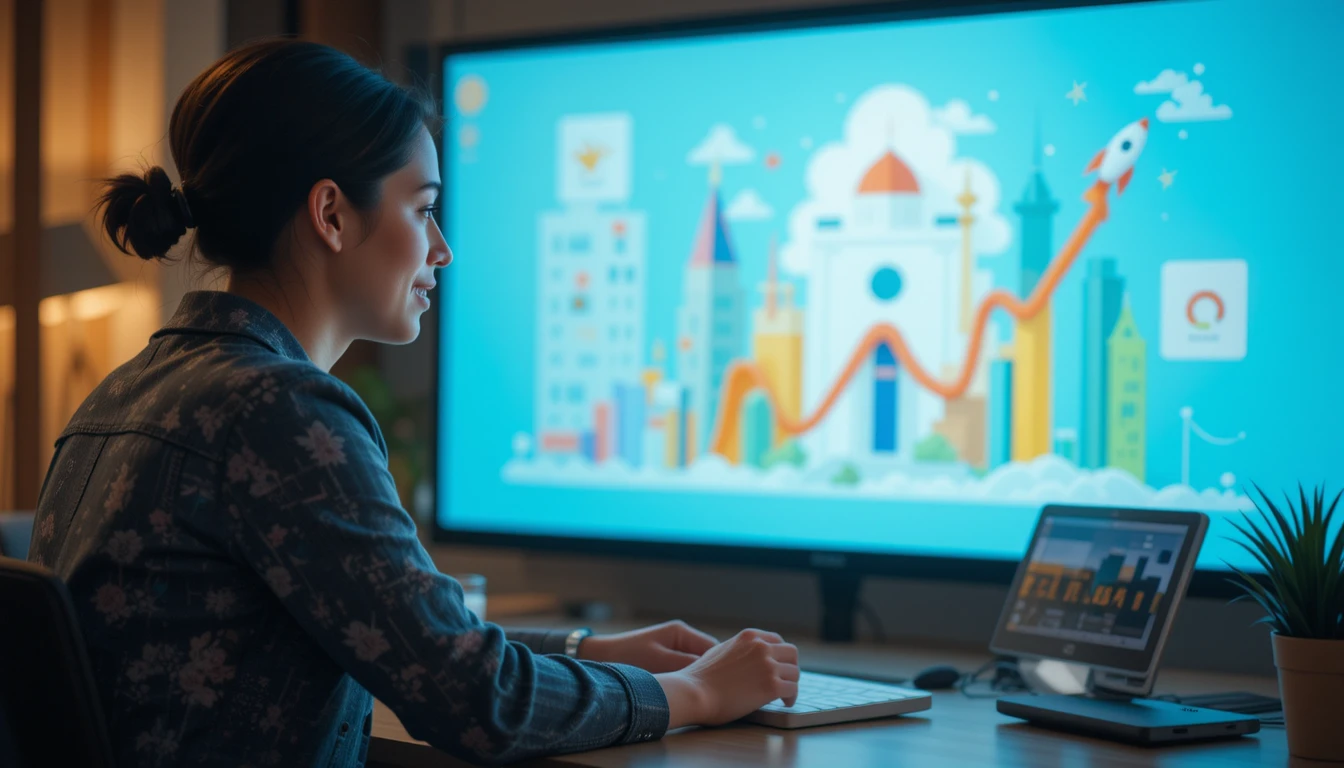The future of social media is closer than you think, and it’s evolving faster than ever. Imagine a world where augmented reality (AR) makes virtual hangouts feel like physical gatherings, or where artificial intelligence (AI) predicts your preferences before you even realize them yourself. Social media, once a simple way to connect with friends, is becoming a sophisticated ecosystem driving how we live, work, and connect. In this blog, we’ll dive into the trends shaping the future of social media in 2025 and beyond. Buckle up, because the digital landscape is about to get even more exciting—and emotional!
What Will the Future of Social Media Look Like?
Social media in 2025 is poised to blur the boundaries between the virtual and the real. No longer limited to sharing photos or scrolling timelines, it will become a hub for immersive experiences, smart technologies, and hyper-personalized content. With advancements in AR, AI, and blockchain, platforms will evolve into digital universes where innovation knows no bounds. But how exactly will these changes impact us as users? Let’s explore.
Trend 1: The Era of Immersive Experiences with AR and VR
Augmented reality (AR) and virtual reality (VR) are not just buzzwords anymore; they’re the future of social media. By 2025, platforms will integrate AR and VR seamlessly, enabling users to attend virtual concerts, explore distant cities, or even try on clothes without stepping out of their homes. For example, Snapchat and Instagram are already leveraging AR filters, but this is just the beginning. Future applications might include full-scale virtual meetings or interactive gaming experiences that feel shockingly real.
Imagine hosting a virtual birthday party where every guest feels like they’re in the same room. Platforms like Meta’s Horizon Worlds are already paving the way, making virtual socialization mainstream.
Trend 2: AI-Powered Personalization Will Redefine Engagement
Artificial intelligence is set to revolutionize how we interact on social media. By 2025, algorithms will be smarter, analyzing user behavior to create hyper-personalized experiences. Think of your social feed as a reflection of your thoughts, desires, and needs—all curated by AI.
While this personalization will improve user satisfaction, it also raises questions about privacy and data security. Companies must strike a balance between offering value and respecting users’ digital footprints. Nevertheless, AI will make content discovery effortless and engaging, keeping users hooked like never before.
Trend 3: Social Commerce Will Dominate Online Shopping
Social media is no longer just about connecting; it’s about commerce. Platforms like Instagram, TikTok, and Pinterest have already introduced shopping features, but by 2025, the line between socializing and shopping will disappear altogether. Imagine scrolling through your feed and purchasing a product directly from a live-streamed event or a story ad.
With the rise of AI, these platforms will learn your preferences and recommend products that align perfectly with your needs. Payment integrations will become more seamless, allowing for one-tap checkouts, while AR tools will let users try before they buy—virtually, of course.
Trend 4: Decentralized Social Media Will Challenge Big Tech
Blockchain technology is bringing decentralized platforms to the forefront, disrupting the dominance of giants like Facebook and Twitter. Decentralized social media gives users greater control over their data, eliminates censorship concerns, and fosters a fairer revenue model for creators.
Trend 5: Short-Form Video Will Continue to Thrive
Short-form video is the king of content, and its reign isn’t ending anytime soon. TikTok, Instagram Reels, and YouTube Shorts are fueling this trend, offering bite-sized, engaging videos that capture attention instantly. By 2025, expect even more innovation in short-form content, with AI-generated videos, interactive elements, and advanced editing tools becoming the norm.
Creators will push the boundaries of creativity, while brands will leverage this format to connect with younger, tech-savvy audiences. The popularity of short-form video underscores the importance of quick, impactful storytelling.
Trend 6: The Rise of Niche Platforms and Communities
As users seek more authentic connections, niche platforms will rise in popularity. Instead of engaging with broad audiences, people will flock to smaller, interest-specific communities where their voices are heard. Platforms like Discord, Reddit, and even emerging apps like Clubhouse already cater to this demand, but the trend will amplify by 2025.
For marketers and brands, this presents an opportunity to engage deeply with targeted audiences. Instead of casting a wide net, they’ll focus on meaningful interactions within these micro-communities.
Trend 7: The Role of Ethics and Digital Well-being
With the increasing influence of social media on mental health, ethical practices will become a priority. By 2025, platforms will invest in features that promote digital well-being, like screen time trackers, customizable notifications, and content moderation tools. Users will demand transparency, accountability, and a focus on mental health from social media companies.
Additionally, educational campaigns on responsible usage will gain traction, encouraging users to engage with social media more mindfully.
Trend 8: The Integration of AI-Driven Chatbots in Social Media
Customer service on social media is about to get smarter. AI-driven chatbots are already assisting businesses in resolving queries, but by 2025, these bots will become even more human-like. From answering questions to making personalized recommendations, AI-powered bots will transform how brands communicate with their audiences.
These bots will operate 24/7, ensuring instant responses and improving customer satisfaction. The use of natural language processing (NLP) will make these interactions feel more organic.
Trend 9: Gamification Will Redefine User Engagement
Gamification is becoming a powerful tool to retain users and make social media more interactive. Platforms will use challenges, badges, and rewards to gamify the experience, encouraging users to spend more time online.
For example, fitness challenges on Instagram or interactive polls on Twitter are early examples of gamification. By 2025, expect more sophisticated systems where users can earn real-world rewards for their digital interactions.
Trend 10: Environmental Awareness in Social Media Marketing
As sustainability becomes a global priority, social media will play a key role in raising environmental awareness. Brands will use their platforms to highlight eco-friendly initiatives, while users will engage in conversations about climate change and sustainability.
Green marketing campaigns will dominate, with social media acting as a powerful tool for advocacy and education.
Why the Future of Social Media Matters
The future of social media isn’t just about technology—it’s about how we, as humans, adapt to and shape these changes. Whether it’s fostering deeper connections, enhancing business opportunities, or promoting social good, the evolution of social media will impact every aspect of our lives. By understanding these trends, we can navigate the future with optimism and curiosity.
Conclusion
The future of social media is both exciting and transformative. By embracing these trends—immersive experiences, AI-driven personalization, decentralized platforms, and more—we can unlock the full potential of these platforms. Social media in 2025 and beyond isn’t just about innovation; it’s about creating meaningful, human-centered connections in a digital-first world. Are you ready to dive into the future?




